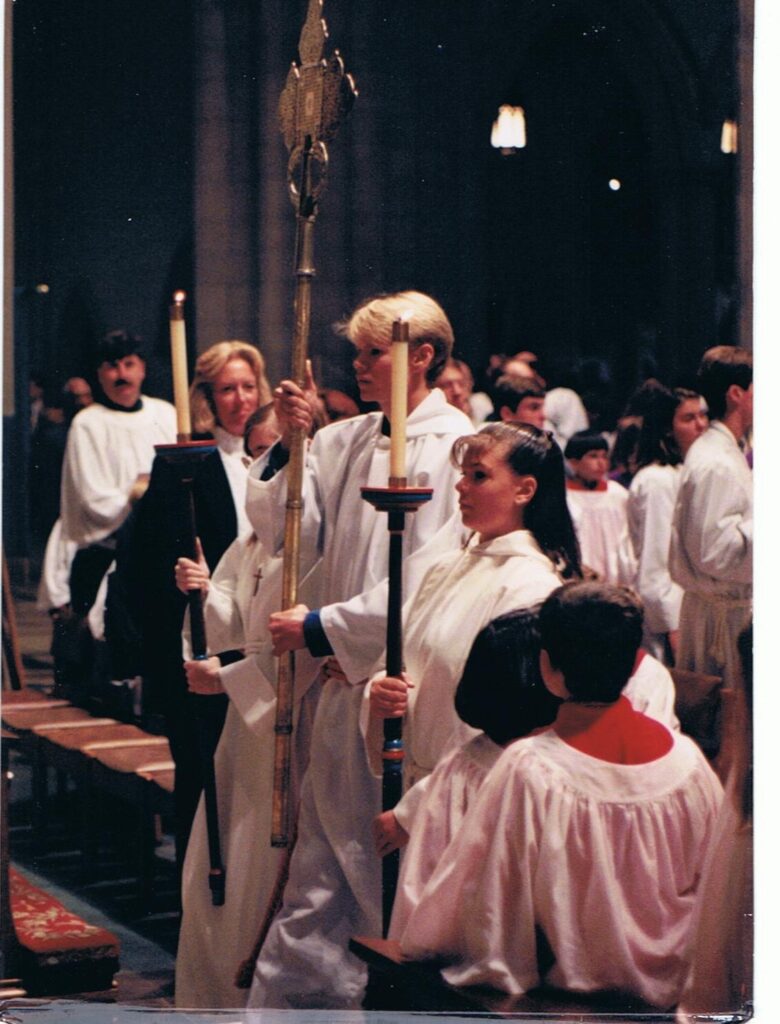Note: If you wish to receive, via e-mail, (1) my weekly newsletter or (2) daily copies of these posts, write to me at [email protected]. Comments may also be sent to this address. I promise not to share your e-mail with anyone. To unsubscribe, write here as well.
Wednesday
It was 25 years ago—April 30, 2000—when my 22-year-old son Justin died in a freak drowning accident. In the quarter of a century since, my sorrow has mellowed to a golden note (to borrow from Langston’s Hughes’s “The Trumpet Player”)–which is to say, it no longer comes to me as a sharp pang but as something more muted.
The poem I share today has some of this softer feel, a sorrowful aching. “Dirge” is Ralph Waldo Emerson’s lament for the brothers who used to play with him in the woods. While alive, he says, they made this world “the feast it was”:
They took this valley for their toy,
They played with it in every mood,
A cell for prayer, a hall for joy,
They treated nature as they would.
They colored the horizon round,
Stars flamed and faded as they bade,
All echoes hearkened for their sound,
They made the woodlands glad or mad.
Now, however, he tills a “lonely field,” encountering his brothers only as “pensive hosts.” His former “strong, star-bright companions,” he writes, “are silent, low, and pale.”
Dirge
By Ralph Waldo Emerson
Knows he who tills this lonely field
To reap its scanty corn,
What mystic fruit his acres yield
At midnight and at morn?
In the long sunny afternoon,
The plain was full of ghosts,
I wandered up, I wandered down,
Beset by pensive hosts.
The winding Concord gleamed below,
Pouring as wide a flood
As when my brothers long ago,
Came with me to the wood.
But they are gone,— the holy ones,
Who trod with me this lonely vale,
The strong, star-bright companions
Are silent, low, and pale.
My good, my noble, in their prime,
Who made this world the feast it was,
Who learned with me the lore of time,
Who loved this dwelling-place.
They took this valley for their toy,
They played with it in every mood,
A cell for prayer, a hall for joy,
They treated nature as they would.
They colored the horizon round,
Stars flamed and faded as they bade,
All echoes hearkened for their sound,
They made the woodlands glad or mad.
I touch this flower of silken leaf
Which once our childhood knew
Its soft leaves wound me with a grief
Whose balsam never grew.
Hearken to yon pine warbler
Singing aloft in the tree;
Hearest thou, O traveler!
What he singeth to me?
Not unless God made sharp thine ear
With sorrow such as mine,
Out of that delicate lay couldst thou
The heavy dirge divine.
Go, lonely man, it saith,
They loved thee from their birth,
Their hands were pure, and pure their faith,
There are no such hearts on earth.
Ye drew one mother’s milk,
One chamber held ye all;
A very tender history
Did in your childhood fall.
Ye cannot unlock your heart,
The key is gone with them;
The silent organ loudest chants
The master’s requiem.
“Their hands were pure, and pure their faith” describes Justin’s quest to be a kind and loving man who was spiritually awake. Sometimes an object or an occasion will, like Emerson’s silken leaf and singing warbler, bring him flooding back. I also know that, because of losing him, my ear is more attuned than it was to earth’s sorrows—“the heavy dirge divine”–than it was before. As a result, I became a better teacher, a better father, son, and husband, and a better friend.
My heart didn’t lock down, as it sounds like Emerson’s did, but the poet helps me hear a requiem in Justin’s silence.
Further thought: The things that trigger Emerson’s remembrances, the flower and the bird song, remind me of two Wordsworth poems. “Even the meanest flower that blows can give,” he writes in “Intimations of immortality, “thoughts that do often lie too deep for tears.” Meanwhile, in “Solitary Reaper” he writes of a woman singing as she harvests grain, “The music in my heart I bore/ Long after it was heard no more.” Both are about full hearts that struggle to adequately express their feelings.


